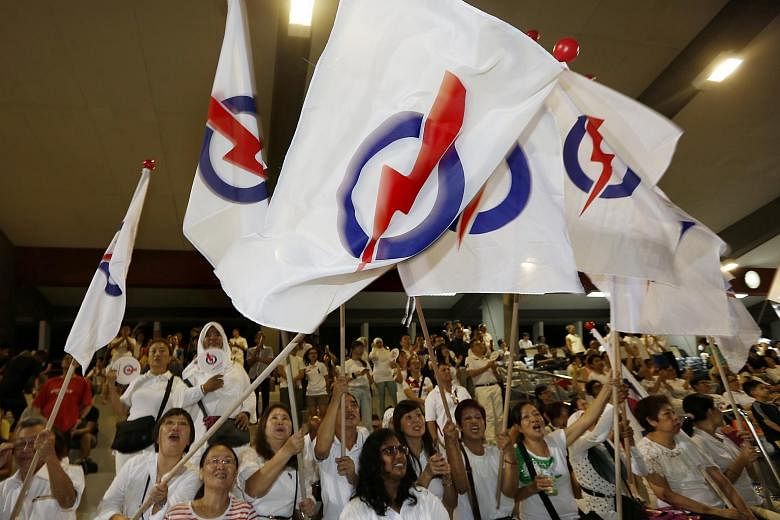SINGAPORE - The Government's landslide election victory means the policies that have helped Singapore maintain its strong credit rating are likely to stay, said ratings agency Moody's.
However, analysts also noted that the issue of succession planning continues to loom and will grow in prominence in the run-up to the next general election, especially as Singapore's political stability has never been tested through a transition away from the People's Action Party (PAP).
The PAP's "strong mandate" will provide market confidence that is integral to a well-functioning financial system in a small and very open economy, said Moody's.
This is important given the risks Singapore is facing from China's economic slowdown and the uncertain global outlook.
The election results also point to "the continuation of credit-positive policies" such as a focus on productivity improvements and rising social spending, the ratings agency noted.
Although social redistribution measures are likely to continue, there is little risk that the Government will provide more healthcare or education benefits without also taking steps to raise revenue.
"The PAP's broadly conservative stance has sought to tweak policies gradually," said Moody's.
Citi economist Kit Wei Zheng agreed, noting that the "landslide vote for stability" was an unexpectedly positive result for the PAP and "should allay investor concerns of a policy lurch towards populism".
In fact, policymakers might now have more headroom to relax property cooling measures and immigration policies, said Mr Ong Kian Lin, head of research at RHB Research.
However, Mr Ong said it is unlikely that any moves will be made this year, particularly on the property front, as prices have not fallen enough.
A measured data-dependent approach would make more sense for the new cabinet.
"There may also be push-back from the populace if asset prices spike right after elections," he added.
In the medium term, more attention will be given to issues such as the affordability of healthcare, a more optimal foreign-local labour force mix, the efficiency of public transport and the quality of life for the "sandwiched" middle income group, said Barclays economist Leong Wai Ho.
"The last two polls indicated that the Government has improved the manner in which it reaches out to the electorate and has adopted a more inclusive style of policymaking," he noted.
Analysts said the issue of who will eventually succeed Prime Minuister Lee Hsien Loong looms large in the longer term.
A smooth succession and policy framework will affect Singapore's credit profile and susceptibility to risks, given that the country's political stability has never been tested through a transition away from the PAP, said Moody's.
Mr Kit said it remains to be seen whether the slightly reduced presence of opposition politicians in Parliament is sufficient to satisfy voters' desires for more alternative voices.
"If not, the next election could see a swing towards the opposition," he added.


